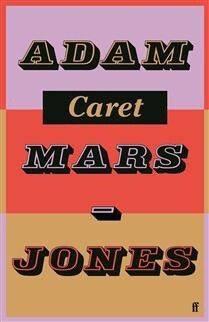Caret by Adam Mars-Jones
'Pilcrow is a humdinger, a startling work that stands out against the monotonous
field of contemporary British fiction as a genuine, almost miraculous oddity.
[.] A 500-page novel about a boy who can't get out of bed might seem like a
nightmare but for a master of comic observation like Mars-Jones it is a gift.'
Metro
'Mars-Jones' scrupulous, compound eye enables him to see an entire era . . . He
can describe more or less anything and make it interesting.' London Review of
Books
Plenty can be daunting, but in the spirit of compromise this feast of a novel is
served on a succession of small plates, each portion providing an adult's daily
intake of literary nourishment in episodes that are variously sweet and sour. For
starters there's the time John spends living out of his beloved Mini in 1970s
Cambridge, before settling into a life of qualified independence. The whole
banquet is accompanied by lashings of John's ideas about the Lady Godiva of
militant twelfth-century Hindu poetry, about the eroticism of fine glassware, the
omnipresence of the number 108 and the undeclared war between wheelchairs
and carpet tiles.
Caret is a long book but not a heavy one, its prose triple-whipped to guarantee a
light and creamy texture. Reading it is guaranteed to help you work, rest and
play.
Adam Mars-Jones's first book of stories, Lantern Lecture, was published in 1981 and won a Somerset Maugham Award. His novels include The Waters of Thirst, Pilcrow, Cedilla, Box Hill and Batlava Lake. He has also published a memoir Kid Gloves: A Voyage Around My Father.
